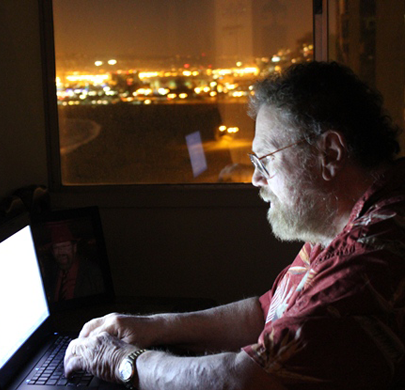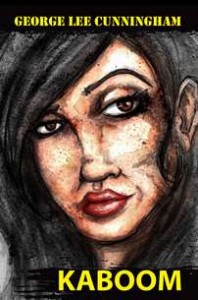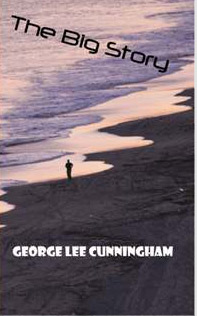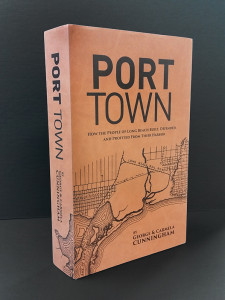ARCHIVED POSTS
-
June 14, 2018
You Don’t Know Jack
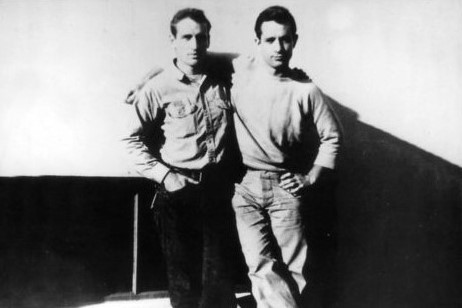
NEAL CASSADY AND JACK KEROUAC, TWO CATHOLIC BOYS TRYING TO FIND GOD
Three times over the years I picked up On the Road – the book that introduced the Beat Generation to America – and three times I got a hundred or so pages into it and tossed it into the corner in disgust.
Jack Kerouac started writing the novel – which is autobiographic in nature – in the late 1940s. He made several false starts, all of which he threw out. Finally, in a marathon creative burst in 1951, Kerouac famously sat down with a long pasted together length of typing paper and wrote the entire book in four weeks. The final manuscript was 140 feet of single-spaced typing.
After numerous revisions, the book was finally published in 1957, and Kerouac was declared the spokesmen for the Beat Generation.
The question for me is why, after giving up three times on the book, did I finally sit down and read it from cover to cover. The answer is, I’m not sure.
Maybe it was because this 1991 edition of On the Road included an excellent 22-page introduction by Ann Charters, author of a Kerouac biography. Charters actually had access to Kerouac and interviewed him about his books and the motivations behind them.
And maybe it was because on my previous attempts to read On the Road, I was too much engrossed with the business of making a living to appreciate the lyrical beauty of the words, or to savor the descriptions of driving across the country before it was crisscrossed with interstate highways. I remember those days as a young man, when driving across America was done on two-lane blacktops, slowing down every 2o or 30 miles, to creep at slow speed through little towns. Each town had its own personality. There would be farmers standing outside of feed and seed barns, or mechanics working on cars in service stations, or drinking men of all persuasions coming and going from the local taverns.
Now you drive across the nation – if you even bother to do so – on interstate highways with off ramps every few miles, each with a cluster of gas stations and fast-food franchises. Shell, Chevron, Exxon, McDonalds, Arby’s, Wendy’s, and Burger King, each with the same efficient personality and plastic food as the ones at the next exit, and the ones at all the exits to come.
Kerouac captured that heartbeat of America of his time in word and raw emotion. There are too many wonderful excerpts to quote, but here are three in which he describes both his point of view and his motivations.
But then they danced down the street like dingledodies, and I shamble after as I’ve been doing all my life after people who interest me, because the only people for me are the mad ones, the ones who are mad to live, mad to talk, mad to be saved, desirous of everything at the same time, the ones who never yawn or say a commonplace thing, but burn burn burn like fabulous yellow roman candles exploding like spiders across the stars and in the middle you see the blue center pop and everybody goes “Awww.”
Then there is this description of a ride through the West in the back of a flat-bed truck with a bunch of other broke hitch-hiking wanderers.
As in a dream, we zoomed through small crossroads towns smack out of the darkness, and passed long lines of lounging harvest hands and cowboys in the night. They watched us pass with one motion of the head, and we watched them slap their thighs from the continuing dark the other side of town – we were a funny looking crew.
Or this piece in which he describes the primal joy of West Coast jazz in the clubs of San Francisco.
Dean stood in front of him, oblivious to everything else in the world, with his head bowed, his hand socking in together, his whole body jumping on his heels and the sweat, and always sweat was pouring and splashing down his tormented neck to literally lie in a pool at his feet. And the girls, Galatea and Alice were there, and it took us five minutes to realize it. Wow, Frisco nights, the end of the continent then, and the end of the road, and the end of all dull doubt.
But despite such moments, the narrative has a sense of desperation and sadness that speaks to that place we all sometimes get, when the friends and companions have gone and we are left alone to confront who we really are.
Although the novel is biographical, covering several years of Kerouac’s life on the road, the names of the characters were changed for legal reasons.
Jack Kerouac in the book became Sal Paradise; Neal Cassady, an ex-con and thief, was Dean Moriarty; the poet Allen Ginsberg was Carlo Marx; the Harvard-educated writer and drug addict William Burroughs was Old Bull Lee; author and poet John Clellon Holmes was Tom Saybrook; street-hustler poet and hobo Hurbert Huncke was Elmo Hassel, and Neal’s wife Carolyn Cassady was Camille.
That’s what I liked about the book. So what did I not like about it?
The characters were all selfish, pretentious and just a little bit silly. They were more like school boys than grown men. They found women they loved with great passion, but their love was a thousand miles across and an inch deep. As soon as they got an itch to be back on the road with their buddies, they were gone. Traveling across the country, drinking to excess, smoking pot, taking drugs, and sleeping with high school girls.
Perhaps that says more about me than about them. Perhaps I am the one mired in a middle-class, bourgeoisie morality that values commitment and loyalty. But so be it. The characters ended up disappointing each other, and letting their companions down at critical times when they felt the need to disentangle themselves from their commitment to each another.
Not likable characters. Not at the beginning of the book and not at the end. Even the most likable character, the energetic, enthusiastic Neal Cassady (Dean Moriarity in the book) by the end, was so much less than when he began. And maybe that’s the point.
They were the folks who spawned the Beat Generation – which devolved quickly into a caricature of itself. Coffee houses, bongo drums, berets, and bad poetry. It didn’t take long for the media to degrade the Beat Generation described by Kerouac into beatniks – a play on the name of the Sputnik satellite launched into orbit by the Soviet Union.
The beatniks would morph into the hippies and the so-called flower children, even further removed from the essence of who and what Kerouac believed and who he was.
In the end, Kerouac became bitter. The movement he had help spawn became politicized. Kerouac was not politically inspired. He was writing about life, not about utopian political visions. Despite his non-conformist nature, he was deeply religious. He saw On the Road as two friends roaming America seeking God.
As a Catholic, Kerouac hated the idea of Communism and the left-wing politics spouted by the new generation of hippies and political activists. In 1954, he sat in front of the TV, smoking dope and cheering as Sen. Joseph McCarthy exposed so-called Communist stooges and fellow travelers.
Nobody ever said artists had to be consistent in their beliefs.
Jack Kerouac died on Oct. 21, 1969 in St. Petersburg, Fla. He was 47 years old, a victim of hard living, hard drinking, and severe depression.
In his final interview days before his death, he told a reporter from the St. Petersburg Times: “I’m not a beatnik, I’m a Catholic.”
The other friends went in different directions, some in the quest to be who people thought they were, ended up not only losing their own identities, but morphing into smaller, sadder caricatures of themselves.
Neal Cassady went to San Quentin Prison for two years on a drug violation, after being busted in 1958 for sharing a small amount of marijuana with an undercover agent in a San Francisco nightclub. He lost his job with the Southern Pacific Railroad, and was divorced by his wife, Carolyn Cassady upon his release.
In 1964, Cassady became the driver of the famous school bus as part of author Ken Kesey’s band of “Merry Pranksters.” The bus, the Pranksters, and an LSD-fueled cross-country journey was later chronicled in writer Tom Wolfe’s book, “The Electric Kool-Aid Acid Test.” But Carolyn Cassady – who never stopped loving Neal despite their divorce, had a darker view of Kesey and the Pranksters. Neal, she felt, had become an oddity, not really included with the other Pranksters and not really trusted by them.
He and many of the former Beat Generation characters had become imitations of what they had been. Of course, this doesn’t happen just to celebrities. It also happens also to regular folks who takes themselves too seriously or allow other people to do so.
Cassady died in 1968 in Mexico. He had attended a wedding on February 3. After it was over, he was walking along a railroad track on a rainy night, clad only in jeans and a T-shirt. He was discovered unconscious along the track the next morning by a Community College professor from El Paso, who carried him to the nearest settlement. He was taken to a nearby hospital where he died a few hours later. He was 41 years old.
Allen Ginsberg, Carl Marx in the book, died in 1997.
Author Willian Seward Burroughs II, Old Bull Lee in the book, died in 1997. Burroughs was the drug-addicted grandson of William Seward Burroughs I, founder of the Burroughs Corporation – a manufacturer of office machines. During a drunken party in Mexico City, Burroughs II killed his common-law wife, Joan Vollmer when he used a pistol to try to shoot a highball glass off her head. He missed, hit her in the head, and she died instantly. He was arrested, but jumped bail and fled to the U.S. The incident, he said, marked his life and his work for ever after.
John Clellon Holmes, Tom Saybrook in the book, continued his career as a writer and poet until his death in 1988.
Hurbert Huncle, Elmo Hassel in the book, died in 1996.
And Carolyn Cassady, Camille in the book – the woman who loved both her husband and Jack Kerouac and who by mutual consent shared her bed with each of them – died in 2013.
Do you have a dissenting opinion or any opinion at all on the subject? Contact me at george@georgeleecunningham.com and let me know. Meanwhile, you can always subscribe and get an email reminder of blog postings. Your name will not be shared and you may cancel at any time.
-
LYRICS, POETRY AND PROSE 180615
A place to share some words of beauty, inspiration, and life. Today’s lyrics pay homage to author Jack Kerouac, whose book On the Road introduced America to the Beat Generation. The book talks of road trips across America, freedom, jazz, women and drugs. The writings of Kerouac inspired a new generation of writers and musicians. Click on the name of the piece to get a video or more information.
I speculate and browse the Duraflame
Winter in the west coast cool
Out by the sea where no one knows my name
I’m on the road like Jack, Jack Kerouac
Like Jack, Jack Kerouac
Like Jack, Jack Kerouac
Like Jack, Jack Kerouac– Jack Kerouac Singer and writer: Brooke Fraser
Jack Kerouac took old Highway 6
Traveled across the great divide
Wrote books and poems as he rambled
Confessions that he couldn’t hide
Desolation angels dancing on the road
Like a subterranean jazz club that never had to close
Vanity and visions in a blues haiku
Left me howling the bohemian cowboy bluesInspired a whole beat generation
To put their thumbs out in the wind
Took that long long road less traveled
Again and again– Bohemian Cowboy Blues Singer and writer Jimmy Lavave
Hey Jack, now for the tricky part
When you are the brightest star who were the shadows
Of he San Fancisco beat boys who were the favorite
Nows they sit and rattle their bones and think of their blood stoned days
You chose your words from mouths of babies got lost in the wood
The hip flask slinging madman, steaming cafe flirts,
Nights in Chinatown howling at nightAllen baby, why so jaded
Have the boys all grown up and their beauty faded
Billy, what a saint they made you
Just like Mary down in Mexico on All Souls’ Day– Hey Jack Kerouac Singer:Natalie Merchant; Group: 10,000 Maniacs; Writers: Robert Buck & Natalie Merchant
-
May 26, 2018
The meek do not inherit the earth
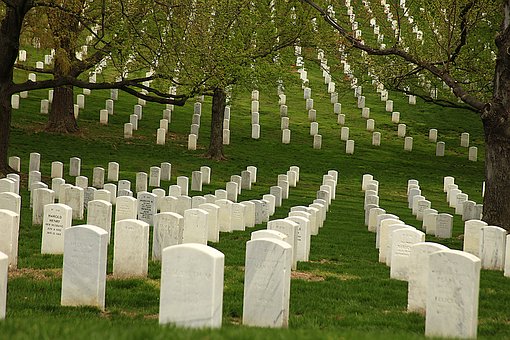
The United States is and always has been a warrior nation. We kicked out the British and gained our independence.
When the British came back a quarter century later, we kicked them out again. And that’s a good thing. In this world, there are the conquerors and the vanquished. We kicked Mexico out of California, Arizona, Texas, and New Mexico. We roughed up Spain, just for practice. We destroyed Kaiser Wilhelm II of Germany, and then destroyed Hitler, Mussolini and Hirohito 25 years later. We fought the Korean War to a standstill, had our confidence shaken in Vietnam, and have killed Muslim terrorists by the thousands.
The Soviet Union no longer exists.
Americans are the biggest military power on earth and that’s a good thing. Because if we aren’t, somebody else will be. Pax Americana. The idea of one strong military power that makes the world a safer and more peaceful place than it would otherwise be.
A lot of people nowadays reject that kind of talk. Why can’t be all just get along, they ask. The answer is, because we can’t. It’s not in our nature. Since the first caveman picked up a club and smashed it over the head of his enemy, human beings have been at war – in big ways as well as small.
That great progressive president Teddy Roosevelt famously said: Speak softly and carry a big stick.” The only thing that has changed over the years is that the stick keeps getting bigger and bigger.
Which takes us to Memorial Day 2018 – Monday, May 28 – the day we honor our fallen heroes. These are the folks who picked up a gun or climbed into a fighter jet or drove armored vehicles down highways infested by would-be ambushers. They fought their way across the Pacific, landed on the beaches at Normandy, held off the Germans at Belleau Wood, stormed San Juan Hill in Cuba, and fought one another in the bloodiest wars in our history.
Like Pax Romana and Pax Britannica, we understand that Pax Americana will not last forever. But that hardly means we should shrug our shoulders and walk away today. If America is not the dominant power in the world, some other country will attempt to be.
We are a warrior nation. We have always been a warrior nation. Once we give up that role, we become much like Europe – a shadow of what once was. So on Monday, we honor the warriors. They are the men and women who stand between us and those who would do us harm. You don’t have to march in a parade or sit through a speech to honor what they did.
Just enjoy the American life you have and remember the people who made it possible.
Do you have a dissenting opinion or any opinion at all on the subject? Contact me at george@georgeleecunningham.com and let me know. Meanwhile, you can always subscribe and get an email reminder of blog postings. Your name will not be shared and you may cancel at any time.
-
LYRICS, POETRY AND PROSE 180525
A place to share some words of beauty, inspiration, and life. Today’s lyrics pay homage to the American warriors who live and die protecting our way of life. The first song is the Warrior Song, a raw and angry rap about the life and death ethos of being a warrior and killing your country’s enemies. There are two versions of the song – The Marine version and the Army version. I picked the Army – first because I was in the Army and second because the song includes great quotes by General George Patton. The second song is Toby Keith singing about payback to the enemy, Courtesy of the Red, White And Blue. The third song is a corny and sad tune, sure to bring a tear to your eye if you like country music about life and loss. Click on the name of the piece to get a video or more information.
I bask in the glow of the rising war,
lay waste to the ground of an enemy shore,
wade through the blood spilled on the floor,
and if another one stands I’ll kill some more.
Bullet in the breech and a fire in me,
like a cigarette thrown to gasoline,
if death don’t bring you fear
I swear, you’ll fear these marching feet.
Come to the nightmare, come to me,
deep down in the dark where the devil be,
in the maw with the jaws and the razor teeth,
where the brimstone burns and the angel weeps.
Call to the gods if I cross your path
and my silhouette hangs like a body bag;
hope is a moment now long past,
the shadow of death is the one I cast.– The Warrior Song Writer: Sean Householder
Hey, Uncle Sam put your name at the top of his list
And the Statue of Liberty started shakin’ her fist
And the eagle will fly it’s gonna be hell
When you hear mother freedom start ringin’ her bell
And it feels like the whole wide world is raining down on you
Brought to you courtesy of the red white and blue– Courtesy of the Red, White, and Blue Singer and Songwriter: Toby Keith
Have a beer for me
Don’t waste no tears on me
On Friday night sit on the visitor side and cheer for the home team
Drive my Camaro
90 miles an hour down Redrock Road with “Born To Run” blastin’ on the radio
And find someone good enough for Amy
Who will love her like I would have
If I don’t make it back– If I Don’t Make It Back Singer: Tracy Lawrence; Writers Bobby Pinson & Brett Jones
-
May 4, 2018
The Big Easy – Then and Now
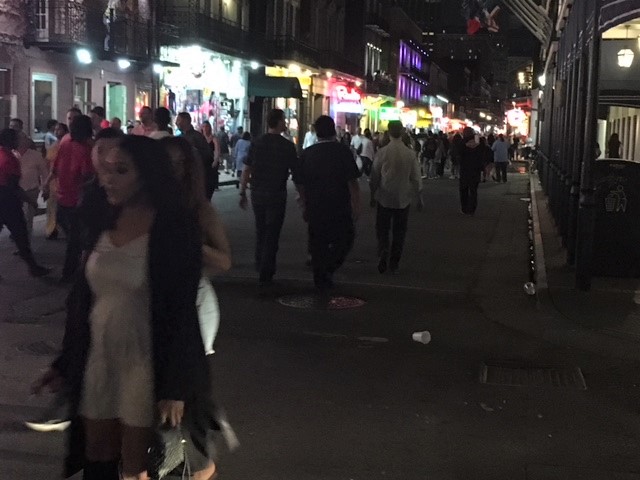
BOURBON STREET NIGHT SCENE – Photo by George Cunningham
The first time I went to New Orleans was in 1964 with my brother Chuck.
I was 23, he was 17. We had enlisted together under what the Army called the “Buddy Plan.” We had just finished basic training in South Carolina the month before, had been home on 30-day leaves, and needed to catch an Air Force flight from Tampa to New Jersey.
I don’t know about today, but back then if you were in the military, you could hitch flights aboard military aircraft if one was going your way.
We waited most of the day around the base with no luck, then somebody said they had a Navy P2 Neptune sub-hunter headed for New Orleans and they had room for a couple of passengers if we were interested. We jumped at the chance. First we had never ridden in a Navy sub-hunter, and second, we had never been to New Orleans. Seemed like a win-win.
We got in late, but somehow got a ride to the French Quarter with a couple of other GIs. The minute we got out of the car, we started hitting the bars and the strip clubs. That’s where I saw Lili St. Cyr, a famous strip tease artist of the time. I had read about her in the pulp men’s magazines of my boyhood – magazines like Stag, Saga, and Battle Cry.
What I didn’t realize at the time – and I’m glad I didn’t – was that the very beautiful, very sexy, very wicked Lili St. Cyr was one year older than my mother. But the lights were low and we were all high on the Schlitz 7–ounce Little Joe beers that the bartender kept selling us at the outrageous 1964 price of $3 apiece.
Ms. St. Cyr did her part, pointing to us individually and giving as a shimmy and a bump-and-a grind to keep us engaged. But when she finished her set she left alone, and if not alone at least not with one of us.
So like a million young men before us, we staggered home from a strip-tease club, whooping and a hollering at the moon, full of youthful passion and unfulfilled desire. We had spent most of our money and had little to show for it besides an experience that I clearly remember many decades later. That’s how it was back then. It may be different now, but I suspect not as different as many people believe.
The next morning, we caught an Air Force flight to New York in a large cargo plane and reported as ordered for duty at Fort Dix, New Jersey.
As for Ms. St. Cyr, she retired from being a dancer in the 1970s, opened her own mail-order lingerie business, the “Undie World of Lili St. Cyr.” In her later years, she became a heroin addict, existing on the kindness of friends and the occasional sale of old photographs. By the time she died in 1999 at 81 years old, she was a toothless recluse, living with her cats in a cluttered and dingy Hollywood apartment.
Sad, but true.
The next time I went to New Orleans was four years later, this time during Mardi Gras with my friend, Eddie Arnold, who I served with during the Vietnam War.
We went, as young men are wont to do, with almost enough money for gas, looking for both fun and trouble. It was at a time before the country was completely crossed and sectioned by interstate highways, and most of our trip was at night, through little Southern towns and two-lane blacktop highways, cutting through the Florida panhandle, across a strip of coastal Alabama, along the Gulf shore of Mississippi, and through the lowlands of Louisiana to New Orleans.
By the time we got to the city, the party was already underway. We parked a couple of miles away – the closest spot we could find – and hiked down to the French Quarter, where we proceeded to buy a pint of whisky and started drinking.
My memory of what happened next – after all this time – is somewhat out of sequence and lacking in detail, but it involved good-natured wrestling, shoving, and grab-assing in the streets over the beads being tossed from the parade floats. Nobody seemed to mind very much, it was basically part of the show.
At some point we got arrested, ordered to pour out our booze, put in a police bus, and then turned loose – after all it was Mardi Gras. The cops didn’t want to ruin anybody’s good time.
We got a couple of paper cups and started clowning around, panhandling folks for free booze. Saying stuff like “can you folks spare a little booze for two vets?” “Got any bourbon, rum, whisky, gin, tequila for two thirsty veterans?” People started laughing and pouring us drinks out of their bottles.
I think about how young and strong I was back then. Eddie passed out sometime after midnight, and I carried him fireman style over my shoulder back to the car. We left the next morning, picking up hitchhikers along the way and collecting any money they had to help fill the tanks.
We stopped by Florida State University in Tallahassee, flirted with the girls there, and gave out our hard fought-over Mardi Gras necklaces in exchange for their spare change. We got home, exhausted but happy, full of bruises and tall tales.
That’s the only time I ever visited New Orleans during Mardi Gras, and probably the only time I ever will. But, I have gone back several times since.
One time I went with my wife Carmela, who had a speaking engagement at a conference to talk about a book she wrote, called Information Access and Adaptive Technology. When the sky cap at the airport checked our bags at LAX, Carmela poked me to give him a tip, but I refused. The smallest bill I had was a $20, and I felt that was too big a tip for putting some tags on our bags.
Carmela was not happy, but she kept her peace, until we arrived in New Orleans at just after midnight. The temperature was near a hundred, and it was raining. That’s when we realized that our bags had somehow been sent to Hawaii. She had to go speak at the conference the next morning in the shorts, top, and wedgies she had been wearing on the plane. I will never forget that story, mainly because Carmela is always there to remind me if I do.
Despite the problems, our suitcases did finally arrive and we spent the next couple of days eating red beans and rice, po’ boy sandwiches, jambalaya, and having chicory coffee with beignets for breakfast at the Café Du Monde. We listened to Dixieland, jazz and the blues, enjoyed cocktails at the various bars, and wandered around poking into art and antique shops. On subsequent trips we rented a car and traveled around the city and took the bridge across the Pontchartrain to explore the countryside. But love New Orleans as we both did, over the years, we watched the jazz and blues clubs being replaced by rock, rap, and pop-music venues. That music is OK, but it’s just not the same as Dixieland and the blues.
We have taken four of our nieces – on two separate trips – to the city, and always we have had a good time. But as time went by and the French Quarter changed, it lost much of its sleazy charm and has become a garish tourist mecca with block after block of cheap bars selling Kool-Aid type blended alcohol drinks in ever-bigger containers, and of scores of souvenir shops selling identical cheap and vulgar t-shirts and strands of Mardi Gras fake jewelry – the kind Eddie Arnold and I fought over in the street 50 years ago.
Times change, and I’m OK with that. Bourbon Street was always bright and vulgar with just a hint of danger down the side streets and alleys. But now it seems almost a caricature of itself, kind of a Disneyland recreation of the Barbary Coast.
Carmela and I have returned several times over the years, watching the transformation of the Quarter.
On our visit last month, the Quarter was crammed with students on spring break – doggedly determined to have a good time, standing in long lines at restaurants, and posing for selfies.
And suddenly, I’m wondering if I’ve just gotten too old for Bourbon Street. Certainly that’s a part of it. Let’s face it – the things that I thought were fun years ago, just seem silly now. But Carmela and I asked ourselves this time around. Did we have a good time on our visit to the Crescent City?
Yeah – kinda. Despite the frustrations and disappointments, it was still like visiting an old friend. We found an outdoor patio where we listened to a jazz combo do Sinatra songs. In the middle of one of those sets, a rat, about as big as a small Chihuahua ran across in front of the stage.
“I’m from Chicago,” said a woman at the next table. “That’s nothing.”
We listened to some other music – a jazzy singer doing old standards and a Zydeco band playing Cajun and Creole tunes about life in the lowlands of Louisiana. It wasn’t that we didn’t have a good time in New Orleans, because we did.
But something was missing. I think it was that wicked, vulgar beauty that we had both fallen in love with years ago.
Do you have a dissenting opinion or any opinion at all on the subject? Contact me at george@georgeleecunningham.com and let me know. Meanwhile, you can always subscribe and get an email reminder of blog postings. Your name will not be shared and you may cancel at any time.

